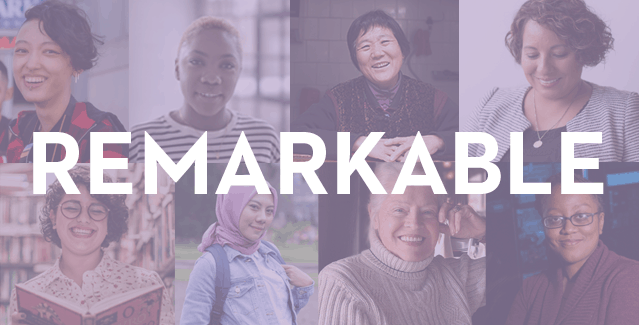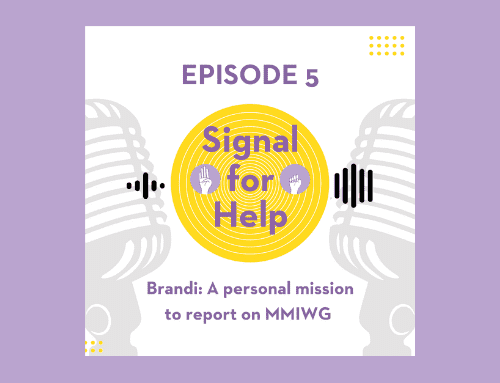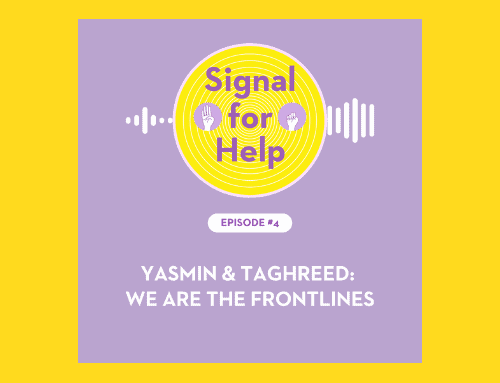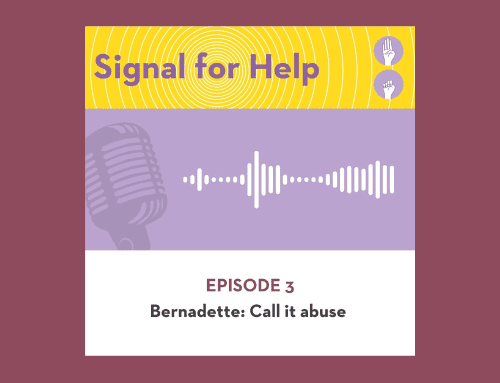Throughout Canada, people working at women’s shelters, sexual assault crisis centres, employment services, and other community programs are going above and beyond to support women and girls during the COVID-19 pandemic.
They’re finding ways to fill gaps, like delivering food and other basic necessities to women who need it, getting mobile devices out to clients so they can stay connected in self-isolation, and launching new services like text-based crisis support so that women confined at home with abusers have a way to safely reach out for help.
These service providers, many of which have received funding from the Foundation, are showing remarkable resilience despite many pandemic-related challenges. Our survey* of women’s service providers revealed so much about what they’re grappling with. Based on 104 responses, we learned that 82 per cent of service providers are concerned about their ability to continue delivering services. While 61 per cent say they’re are offering special programs or services in response to COVID-19, they’re doing so with new constraints:
- 28 per cent said they’ve had to reduce staff
- 38 per cent said they’ve reduced volunteer help
- 40 per cent have had to dedicate more resources to maintenance and cleaning
And while some organizations can transition their services online, this doesn’t necessarily provide women and girls the same safe spaces or communities of support as in-person programming does. For example, women who received confidential counselling may no longer be able to safely participate in virtual counselling sessions from home.
Another challenge is that women and girls living in remote or rural areas may not have the Internet or cell service needed to access online services. “Rural families may have to prioritize financial and work-from-home Internet use ahead of accessing services and making educational and social connections,” says Caitlin MacDonald, Girls’ Program Coordinator of the Girls Rising Empowerment Program at the Community Resource Centre in Killaloe, Ontario. “Feeling isolated, trapped, and alone are all concerns we’ve heard locally.”
And interruptions to school-based programs for girls and teens mean that “the care and support that so many kids experience at school is now significantly reduced,” says Stephanie Klassen, Executive Director of Survivor’s Hope Crisis Centre in Pinawa, Manitoba. “We need funds and resources to be able to pivot,” says Klassen. “Girls’ programming helps build protective factors against the potential harms to which girls are vulnerable. And in a time when risk of harms has increased, we need to up those protective factors, not take them away.”
While they struggle to maintain services, the vast majority of service providers that responded to our survey only expect community challenges to escalate.
- 84 per cent are concerned about increases in gender-based violence
- 95 per cent are concerned about increased mental health issues
- 83 per cent are concerned about how the pandemic will lead to greater economic instability
And these expectations are grounded in research. Disaster situations and disease outbreaks are linked to more gender-based violence. Diverse women are experiencing more economic stress as the economy suffers — women already make up the bulk of the low-wage and precarious workforce in Canada. Many women also now have more caregiving and housework on their plates as a result of the pandemic.
“Resources are essential to support us to work in new ways and address the unique needs of women and girls during COVID-19,” MacDonald says.
Women, girls, and service providers are creative and resilient. But we need to uphold and support them in their resilience during and in the aftermath of the COVID-19 pandemic. The Foundation has launched the Tireless Together Fund to help ensure that vulnerable women and girls aren’t left behind in the COVID-19 crisis. Your contribution will help critical programs for diverse women, girls, and trans and non-binary people continue through the pandemic.
*The Foundation invited service providers across Canada to participate in an informal survey about the impacts of COVID-19. As of April 15, 2020, 104 had responded.
Women Leaders in COVID-19: Seen and Unseen
Women’s “Worry Work in the COVID-19 Pandemic
The Difficult Economic Side-Effects of COVID-19 for Women
The Gendered Impacts of Coronavirus







